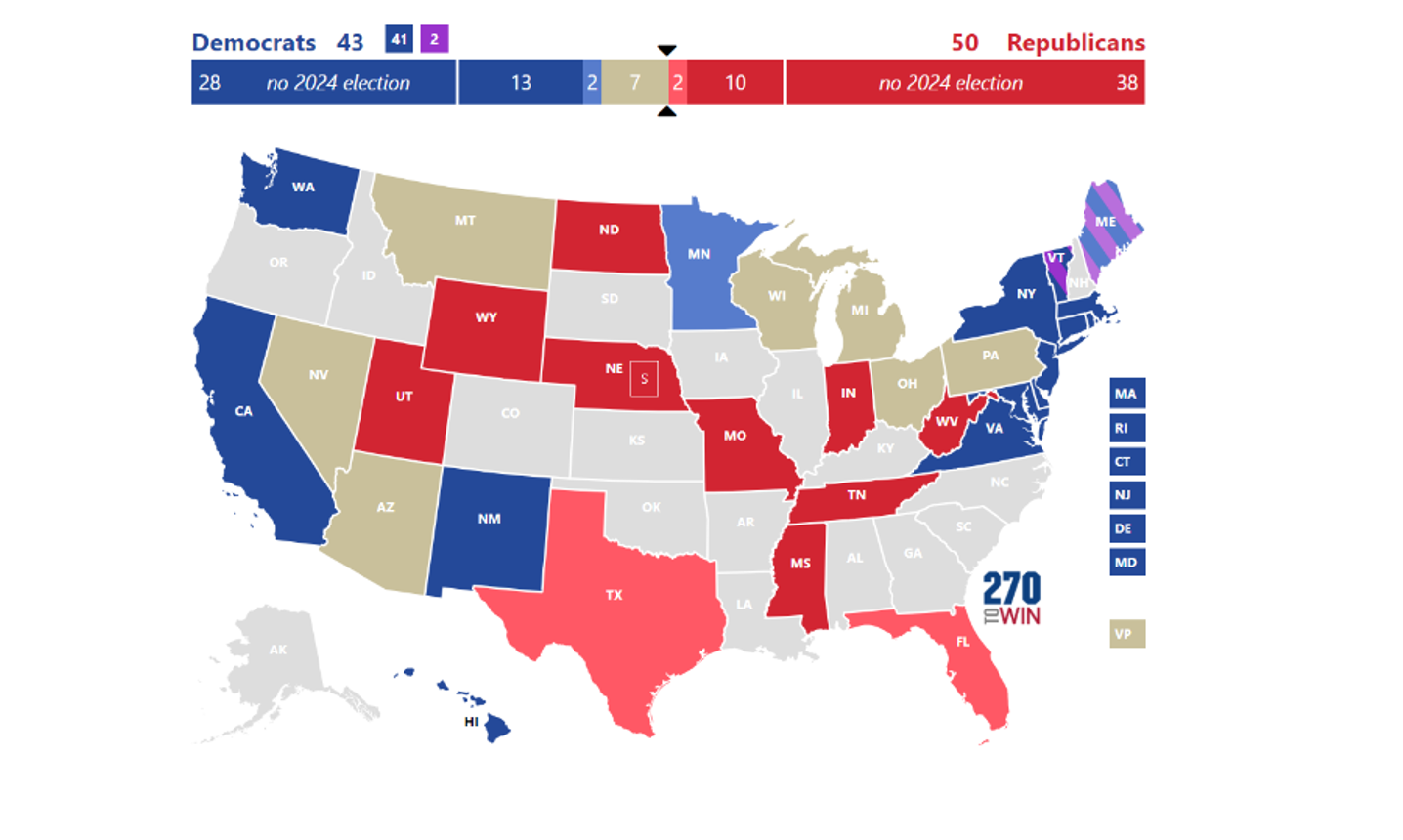With more than two billion voters expected to cast a ballot, 2024 is a busy year for democracy. While many of these voters will be focused on domestic politics, party leaders across the globe are promising monumental foreign policy shakeups should they get the chance to lead. This is particularly true in the United States, where tens of billions in military aid and involvement in multiple international organisations hang in the balance.
The outcome of the US election is certain to have a massive impact on global politics and industry spending. Although no major candidate is likely to spend significantly more or less than the other on the baseline military budget, nearly all Democrats and some Republicans hope to continue providing military aid to Ukraine and other American allies. As long as the war continues, this Congress and the next will continue to debate how much aid, if any, they are willing to finance.
While the passage of such aid is dependent on who wins at the top of the ticket, a Democratic administration might need to continue to attempt to compromise with Republicans in both chambers as well. Looking more closely at this year’s Congressional elections, it’s a tall order for Democrats to maintain their coalition Senate majority. In this chamber, they need to win the White House (to have the VP as tiebreaker), hold their seats in the red states of Montana and Ohio, and fend off Republican challenges in the purple states of Arizona, Nevada, Wisconsin, Michigan, and Pennsylvania. The only pickup opportunities for Democrats are longshots in Florida and Texas. Conversely, Republicans can take the majority by simply picking up one Democratic-aligned seat (in addition to an all but certain flip in West Virginia). Moreover, no matter the outcome, unless Senators abolish the filibuster or carve out a rules exception, they will still require 60 votes to advance most bills to the White House. Finally, even if Senate Democrats can hang on, control of the House of Representatives is expected to be hotly contested.
Of course, the level of aid provided to Ukraine is also dependent on Ukraine itself. Major changes in the battlefield could change Congress’ appetite for appropriating funding. In addition, the rate and amount of spending will be determined in part by how quickly Ukraine uses up the resources it is granted. At the moment, President Biden has requested $61.4bn from Congress, but his plea has been unanswered thus far. It is unclear exactly how long this funding would last Ukraine, but if either side fails to make progress, the next president and Congress will need to authorise additional financing of the war to prevent Ukrainian military depletion.
Looking beyond US spending, a second Trump administration would have an impact on America’s role in the world in several ways. Perhaps most important, US membership in Nato would come into question. In this scenario, European leaders would worry about American security guarantees and feel inclined to increase their defense spending to deter additional aggression from Putin. Moreover, a Trump victory would also bring into question the future of the AUKUS agreement, which is expected to cost $368bn over the coming decades. Finally, the tens of billions that President Biden is eager to spend on military aid to Israel, humanitarian assistance to Gaza, and further support to Indo-Pacific partners would be unlikely to become law.





